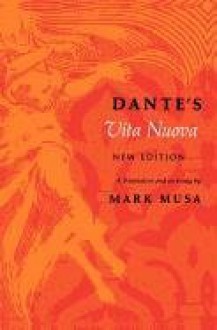
La Vita Nuova
In this new edition Musa views Dante's intention as one of cruel and comic commentary on the shallowness and self-pity of his protagonist, who only occasionally glimpses the true nature of love. "... the explication de texte which accompanies [Musa's] translation is instructively novel, always...
show more
In this new edition Musa views Dante's intention as one of cruel and comic commentary on the shallowness and self-pity of his protagonist, who only occasionally glimpses the true nature of love. "... the explication de texte which accompanies [Musa's] translation is instructively novel, always admirable.... This present work offers English readers a lengthy appraisal which should figure in future scholarly discussions." —Choice
show less
Format: paperback
ISBN:
9780253201621 (0253201624)
Publish date: April 22nd 1973
Publisher: Indiana University Press previously by Rutgers
Pages no: 86
Edition language: English
Category:
Classics,
Academic,
School,
Literature,
European Literature,
Cultural,
Italy,
Historical Fiction,
Romance,
Medieval,
Philosophy,
Poetry,
Italian Literature

«Ecce Deus fortior me, qui veniens dominabitur michi.»

This is a little book of poems, mostly sonnets with surrounding explanatory text. The text tells of Dante's love for Beatrice and the poems mark this evolution ending in the intention to honour her in a way no poet has done, which of course will turn out to be the Paradiso. Dante is very much bein...

Nel suo profundo vidi che s'interna,legato con amore in un volume, cio che per l'universo so squanderna...

Foreword to the Revised EditionChronologyIntroduction & NotesFurther ReadingA Note on the Translation & NotesLa Vita Nuova--I--II--III--First Sonnet--IV--V--VI--VII--Second Sonnet (double)--VIII--Third Sonnet--Fourth Sonnet (double)--IX--Fifth Sonnet--X--XI--XII--Ballad--XIII--Sixth Sonnet--XIV--Sev...

A lot of weeping and mourning , Just finished it in both translation English and Arabic and I don`t feel that I have read it at all , translated poetry always wastes something , I will consider it as an intro to The Divine Comedy , hope that the latter will change my view about classical poetry .

